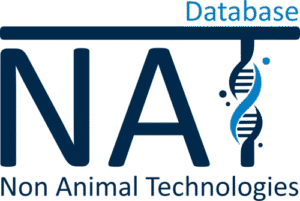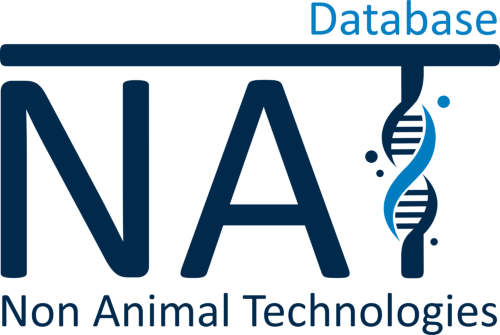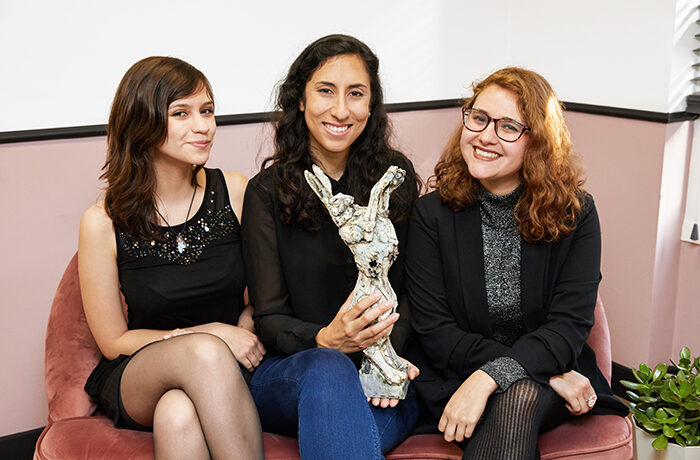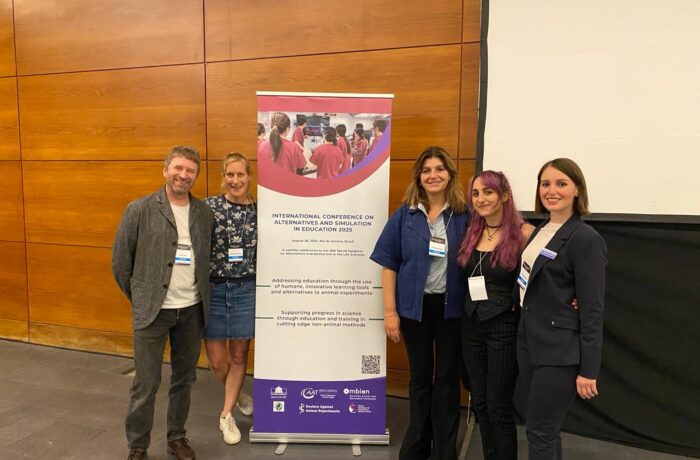NAT-Database: Raising public awareness for Non-Animal Technologies to promote human-based research

When our team at Doctors Against Animal Experiments received the Lush Prize for Training in 2022 for the NAT Database, it was more than an award, it was also a decisive step forward in the further development of the project. Three years on, it is time to recapitulate the impact of the prize: the database has grown in both scope and functionality, and it has even given rise to a new initiative, NATworks, which connects companies and young scientists in the field of animal-free research.
The NAT Database (Non-Animal Technologies) was designed to solve a persistent problem: although a wealth of animal-free methods already exists, these innovations often remain hidden in the shadow of animal-based studies that dominate traditional literature databases. Our goal was to create a resource where such methods are summarised clearly, made freely accessible, and easy to navigate.
Today, thanks to the support of the Lush Prize, the database contains 2,147 entries across 26 research fields from 61 counties. A significant new addition is ecotoxicology – a field notorious for large-scale animal testing. Here, the database now highlights non-animal alternatives, helping researchers make informed, ethical choices.
We have also added new search functions that make the database more practical for everyday use. Users can now filter for regulatory accepted methods. At present, the database includes 51 regulatory-approved animal-free methods, including those accepted by the OECD. In addition, users can specifically search for commercially available technologies from NAM- or MPS-developing companies. This last function is especially relevant for scientists who may not have the resources to develop new methods themselves but still want to work with state-of-the-art animal-free tools. Already, 368 company entries are listed, with more added continuously.
To expand visibility, the NAT Database has been integrated into the online library systems of more than 340 German universities. It is also used by regulatory authorities to identify available alternatives when reviewing animal experiment applications, and regulatory bodies recommend it to researchers submitting applications.
To actively support the EU Commission’s roadmap for animal-free chemical testing, the NAT Database is listed in the JRC catalogue as a Transitional Initiative. In this context it will be used to monitor gaps where NAMs are needed or still missing for replacement of animal experiments and help to recruit experts to fill these gaps. It is also included in the Transition Programme for Innovation without the Use of Animals (TPI) and featured on the Norwegian platform Norecopa.
“With the support of the Lush Prize, we were able to expand the database not only in terms of content but also technically. As a result, it has become even more practice-oriented for both researchers and regulators, and helps animal-free methods to be adopted more quickly,” says Dr Johanna Walter, Scientific Advisor at Doctors Against Animal Experiments.
While the database organises knowledge, it also revealed the sheer number of companies dedicated to developing animal-free technologies. This observation led to a new idea – to create a space where scientists, students, and companies could connect directly. By doing so, we want to show young scientists – who often come from a system in which they are told that they cannot pursue a career without conducting animal experiments – that there are indeed career opportunities free from animal suffering. Thus, NATworks was born.
The first NATworks webinar took place in November 2024, attracting over 220 participants. Companies presented their innovative animal-free methods, while young researchers had the chance to engage with them in breakout sessions.
“We want to show graduates that a career without animal experiments is not only possible but also future proof. NATworks provides the right platform for exchange, inspiration, and new perspectives,” says Walter.
The feedback confirmed the need for such a forum. Many participants described it as a unique opportunity to explore career paths that align with both scientific progress and ethical responsibility. Encouraged by this response, we are already planning further NATworks events. To provide a permanent hub for exchange, we are currently developing an online database listing NAM- or MPS-developing companies worldwide.
Our NATworks initiative is perfectly complementing the NAT Database. While the NAT Database collects knowledge focusing preliminary on groundbreaking developments in basic research, NATworks targets the applied science sector – a critical area for regulatory applications such as drug development and safety testing of chemicals, and standardised innovation-driven testing. Together, both platforms help to accelerate the transition to a modern, human-relevant research landscape paving the way toward a scientific future without animal testing.
Explore the resources:
- The award-winning NAT Database
- The first NATworks webinar








Spread the word: